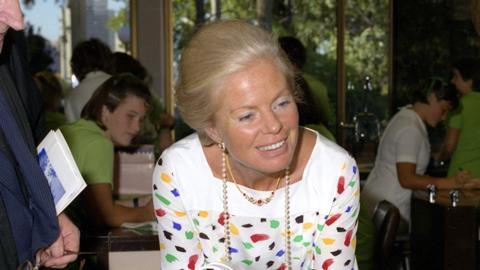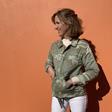Jemimah Wright reflects on the life and faith of Katharine, Duchess of Kent. In her journey through joy, sorrow, and ultimately conversion to Catholicism, the Duchess leaves behind a legacy of humility, service, and steadfast devotion to Christ.

Katharine, Duchess of Kent (née Katharine Lucy Mary Worsley), died at Kensington Palace on 4 September 2025, aged 92. In 1994 she became the first senior British royal publicly received into the Catholic Church since the Act of Settlement of 1701 and therefore her funeral, to be held at Westminster Cathedral on 16 September, will be the first royal Catholic Requiem Mass in modern times - a final testament to her faith journey and legacy.
She was born on 22 February 1933 at Hovingham Hall in Yorkshire. She married Prince Edward, Duke of Kent, in 1961 at York Minster - the first royal wedding there in over 600 years. From the earliest days of her royal life, she embodied devotion, humility, and a deep love of music.
READ MORE: Are Prince William and Kate Middleton Christians? A look at the faith of the royal couple
However, her life was marked by profound personal suffering. In 1975 she suffered a miscarriage caused by rubella, and in 1977, her son Patrick was stillborn, a loss she later described as “devastating,” and one that filled her with empathy for others who had suffered similarly. This hardship led her into a period of severe depression, but also deepened her compassionate spirit. In a 1997 interview with The Daily Telegraph she said: “It had the most devastating effect on me. I had no idea how devastating such a thing could be to any woman. It has made me extremely understanding of others who suffer a stillbirth.”
But the deepest turn in her spiritual life came in 1994, when, after much prayer and reflection, she converted from Anglicanism to Roman Catholicism.
Beloved by the public for her warmth, especially at Wimbledon, where she presented trophies and famously comforted tearful Jana Novotná in 1993, Katharine made royalty feel accessible and tender.
But the deepest turn in her spiritual life came in 1994, when, after much prayer and reflection, she converted from Anglicanism to Roman Catholicism.
READ MORE: Born in Kensington Palace
Katharine herself described her conversion as a “long-pondered personal decision” one drawn by the clarity and guidance Catholicism offered. In a BBC interview Katharine gave shortly after her reception into the Catholic Church in 1994, she said: “I do love guidelines and the Catholic Church offers you guidelines. I have always wanted that in my life. I like to know what’s expected of me. I like being told: You shall go to church on Sunday and if you don’t you’re in for it!”
Her conversion was undertaken with respect for tradition and love for her family; Queen Elizabeth II was informed and gave her blessing. As Catholic, she attended Mass at Brompton Oratory and made pilgrimages to Lourdes. Her faith informed her humility and service; she volunteered with the Samaritans, even taking calls to comfort those in crisis.
In her later years, Katharine gradually withdrew from public life, stepping away in 2002 and relinquishing her HRH title in favour of a quieter life teaching music
In her later years, Katharine gradually withdrew from public life, stepping away in 2002 and relinquishing her HRH title in favour of a quieter life teaching music in Hull at a primary school as “Mrs Kent.” The world knew her as a gentle presence; her students and parents did not realize she was a duchess
READ MORE: Is the Royal family still relevant to Britain or has the drama of The Crown put us off?
In a BBC One program (Real Story, 2004), she described teaching her students as: “very satisfying. It’s a privilege. To me it’s one of the most exciting jobs anyone can do.”
She remained a steadfast champion of music education and co-founded Future Talent, a charity supporting gifted children from disadvantaged backgrounds
Katharine’s passing marked the end of a life characterised by quiet sacrifice and depth. Katharine converted to Catholicism because she was drawn to the clarity, structure, sacramental life, and devotional richness of the Church. She wanted a faith that offered firm guidance, and Catholicism gave her that spiritual anchor. Her decision was the fruit of long reflection and suffering, and she described it as a personal act of obedience to God rather than a public gesture.
In her own words, “none of us goes through life unscathed” - and yet, in her life, bruised but unbroken, her faith bore fruit: in music, in kindness, and in the love she shared with the forgotten and unseen. May her memory continue as an inspiration to those who seek to live with grace, humility, and devotion in Christ.




































No comments yet